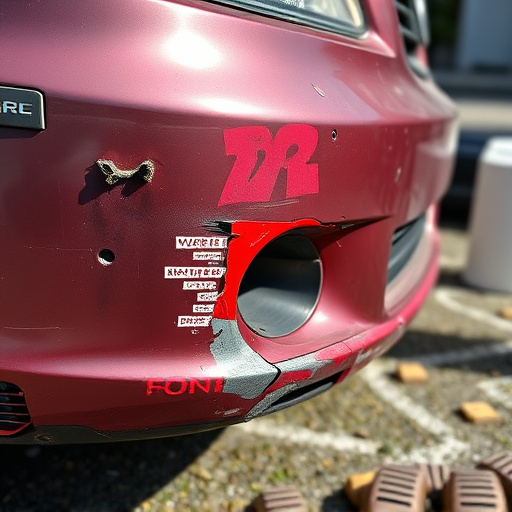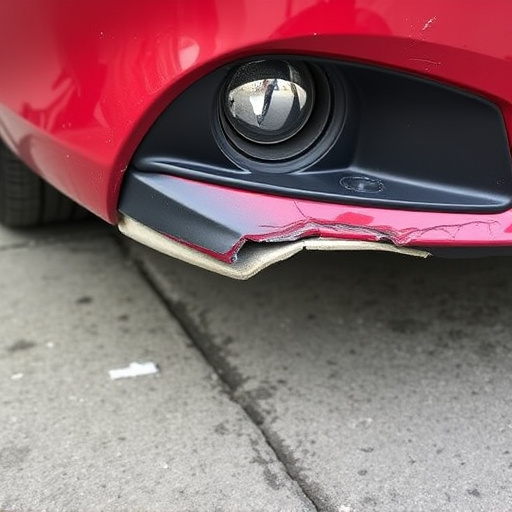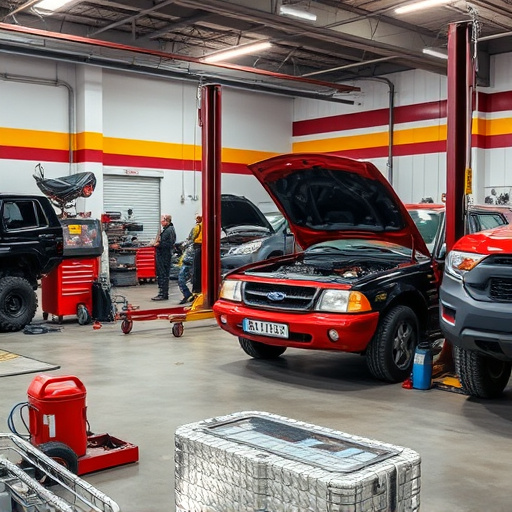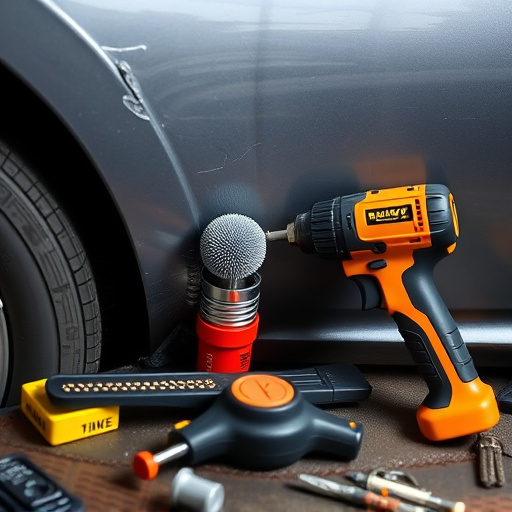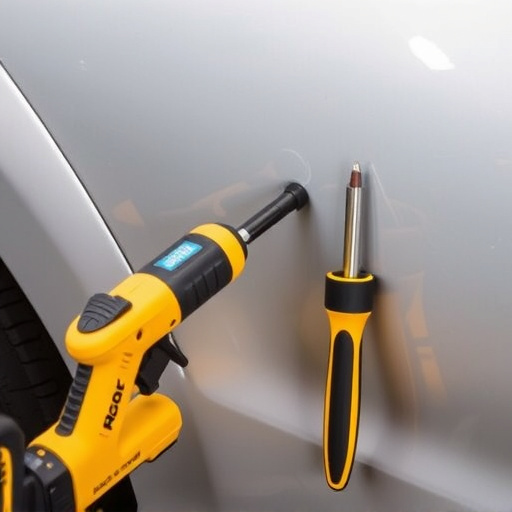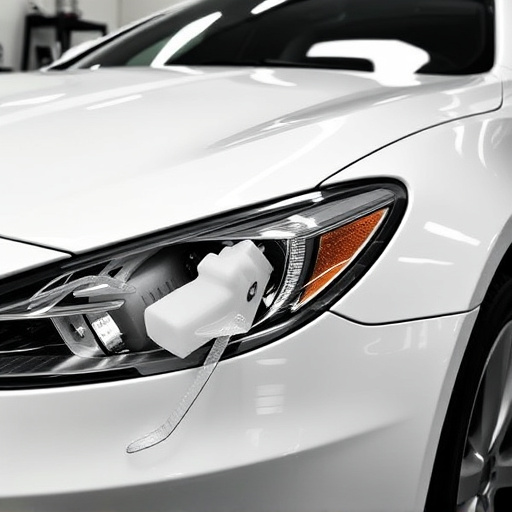Safety sensor recalibration is vital for modern vehicles with ADAS and autonomous features, as sensors can drift over time, leading to potential road risks. Certified auto body shops play a critical role in maintaining sensor integrity post-repairs, ensuring airbag deployment, braking systems, and collision detection accuracy. Regular calibration checks are essential to minimize false alarms, maximize response times, and ensure system reliability, ultimately enhancing safety and efficiency in vehicle maintenance and repair services.
In today’s industrial landscape, ensuring the reliability and accuracy of safety sensors is paramount. Certified shops play a pivotal role in facilitating safe sensor recalibration practices, a process that involves adjusting and testing sensors to maintain optimal performance. This article delves into the fundamental concept of safety sensor recalibration, highlights the critical functions of certified shops, and explores the extensive benefits—from enhanced operational efficiency to reduced risks—of regular and precise recalibration across various industries.
- Understanding Safety Sensor Recalibration: The Basic Concept
- Key Roles of Certified Shops in Ensuring Safe Recalibration Practices
- Benefits of Regular and Accurate Safety Sensor Recalibration for Industries
Understanding Safety Sensor Recalibration: The Basic Concept
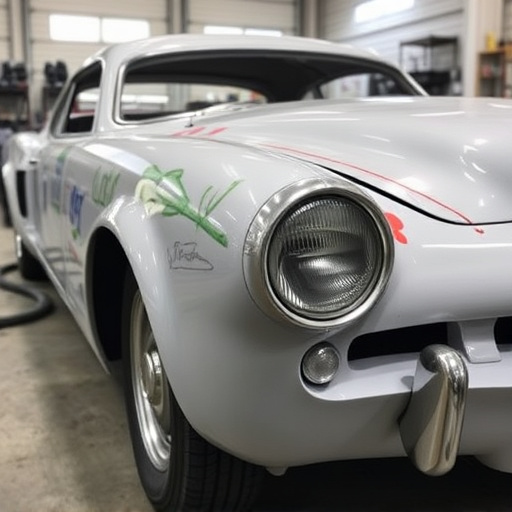
Safety sensor recalibration is a crucial process that involves adjusting and fine-tuning safety sensors to ensure they operate optimally and accurately. These sensors play a vital role in modern vehicles, particularly in advanced driver-assistance systems (ADAS) and autonomous driving technologies. Over time, as these sensors collect data from various driving conditions, their readings might drift or become less precise, leading to potential risks on the road.
A simple example to illustrate this is the scenario of a fender bender—a minor collision. Such incidents can impact the alignment of sensors and cause them to malfunction. An auto body shop equipped with certified technicians understands that recalibration is essential after any incident that might affect sensor integrity, ensuring that automotive body work following an accident doesn’t compromise safety systems. Regular calibration checks and adjustments are thus critical to maintaining the efficiency and reliability of these safety mechanisms, ultimately safeguarding drivers and passengers in the event of unexpected situations.
Key Roles of Certified Shops in Ensuring Safe Recalibration Practices

Certified shops play a pivotal role in upholding safety standards during sensor recalibration, especially in the automotive industry. These specialized facilities are equipped with the necessary tools and expertise to handle intricate calibration processes for various sensors found in modern vehicles. Their key responsibilities include ensuring precise adjustments to sensors responsible for critical functions like airbag deployment, braking systems, and collision detection.
By adhering to strict protocols, these certified auto collision centers and car repair shops maintain accuracy during dent removal and subsequent sensor recalibration. This meticulous approach safeguards against potential risks associated with incorrect calibration, which could lead to life-threatening situations. Their expertise facilitates timely and efficient service, ensuring vehicles return to optimal safety conditions post-repair or restoration.
Benefits of Regular and Accurate Safety Sensor Recalibration for Industries

Regular and accurate safety sensor recalibration is paramount for industries prioritizing safety and efficiency. These sensors, integral to various systems in auto maintenance and auto repair services, play a crucial role in detecting hazards and triggering safety mechanisms within vehicle body shops. When properly calibrated, they ensure optimal performance, minimizing false alarms and maximizing response time during critical situations.
Accurate recalibration enhances overall system reliability by accounting for sensor drift over time. This is particularly vital in dynamic environments where consistent adjustments are necessary to adapt to changing conditions. By integrating regular safety sensor recalibration into their routines, industries can foster a safer workplace, improve operational continuity, and ultimately contribute to a more secure environment for both employees and clients alike.
Certified shops play a pivotal role in ensuring safe and accurate safety sensor recalibration practices, which is essential for industries seeking to optimize their operational efficiency and worker safety. By adhering to rigorous standards and employing advanced technologies, these shops help prevent costly downtime and potential accidents associated with imprecise sensors. Regular recalibration not only enhances the reliability of safety systems but also contributes to a more robust and responsive industrial landscape, ultimately safeguarding both equipment and personnel.


